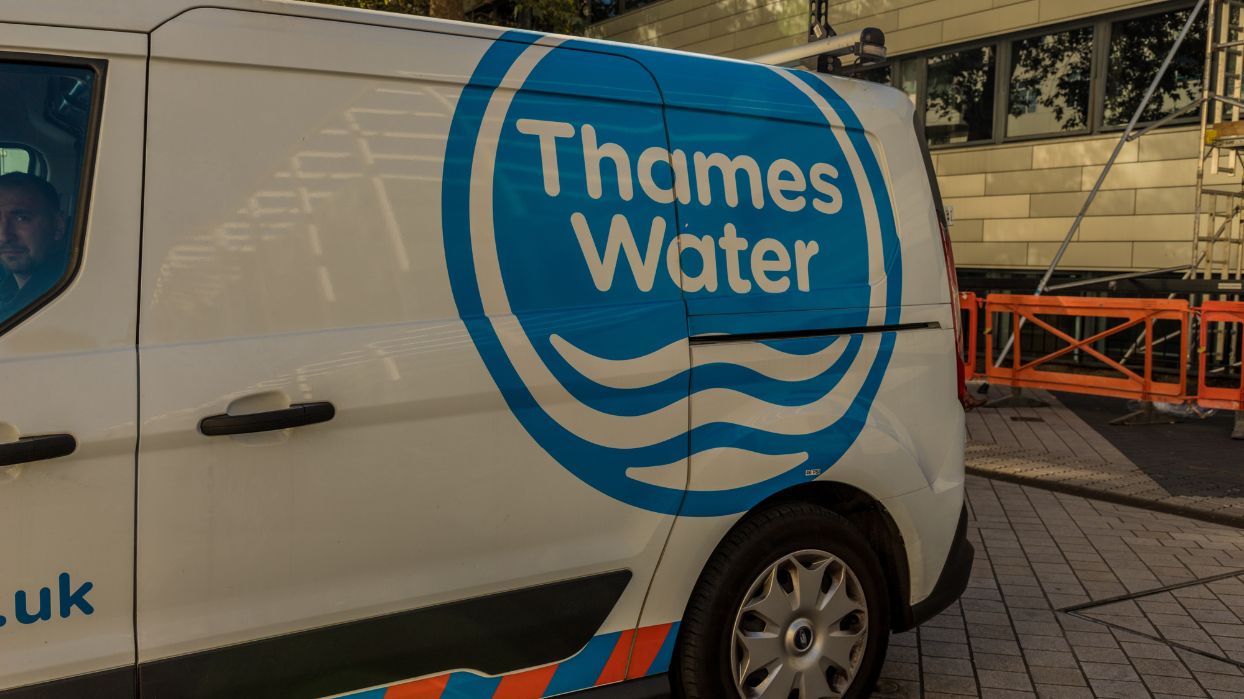Corporate distress in construction and water supply has been dominating the insolvency headlines over the past few months. When a large business in one of these essential sectors comes under threat of insolvency, the ripple effects for other companies and the public sector can cause widespread damage.
Amidst persistent reports of water suppliers failing to correctly treat sewage and facing large fines as a result, and Thames Water’s biblical debts keeping alive the spectre of nationalisation of one sort of another, there’s been no shortage of adverse coverage by the media.
As for construction, ISG finally succumbed to administration in September having been distressed for some time and failing to secure a rescue deal.
Insolvency and Asset Recovery partners Alex Jay and Tim Symes have monitored these stories as they have progressed; this article compiles their commentary.
Thames and Southern Water facing critical financial distress
The troubles at Thames Water have been very public since June 2023, when reports first emerged that the UK’s largest water supplier was in danger of going bust. Recent months have only seen its woes intensify: this August, regulator Ofwat fined Thames along with two other suppliers for failing to manage its sewage works. The £104 million penalty is another liability for an already heavily submerged balance sheet.
Tim commented at the time of the fine for This is Money: “The obvious concern for customers is that the impact of this fine, like the impact of the years of replacing cash with debt, may be used by Thames Water to make a case for higher bills, meaning customers end up indirectly paying for the fines.”
“This is plainly not a consequence which the regulator wants to have created, but in circumstances where Thames Water’s financial distress remains acute, it’s difficult to see how its customers will not be adversely affected by this fine one way or the other.”
Fears of a sharp spike in customer bills have come as Thames Water’s cash reserves depleted faster than its operators expected. While in the summer the company told stakeholders that it had sufficient liquidity to last until May 2025, this was revised in September to a warning that its cash could run out by December this year.
Alex commented then: “As far back as this year’s King’s Speech it was apparent that Thames Water had a limited timeframe to get its house in order, or face up to special administration. It does not appear that a solution is imminent, and time is now running out.”
The operators of Thames Water have repeatedly suggested that raising household bills will be essential to its survival but this may be hard to stomach if the company is seen to have been mismanaged on a fundamental scale, most notably through years of cash extraction in favour of shareholders. Ofwat has now taken the step of appointing an independent Monitor to ‘report on the progress of Thames Water against its equity raise and transformation plans.’ Whether Thames Water survives without entering special administration or another process remains difficult to predict.
Other water companies have also faced funding challenges, though not to the same extent. The likewise heavily indebted Southern Water announced in October 2024 that it was requesting £4 billion in borrowings from investors over the next five years, alongside seeking permission to raise customers’ bills.
Tim commented: “Unlike Thames Water’s hitherto strong-arming attempts as regards pressure on the regulator to let it raise bills, Southern Water’s investors – perhaps with the benefit of observing Thames Water’s strategy – appear to be deploying a more ‘give and take’ approach, which includes plans to raise equity alongside a proposed approach to Ofwat to increase bills. The companies are not like for like in terms of distress, and the options available to each will differ, but Southern’s ability to demonstrate to the regulator that its own investors are ‘doing their bit’ may well make for a smoother ‘bill-raising’ pitch.”
Construction giant ISG collapse will have knock-on effects
One of the UK’s largest construction firms at the time of its collapse, ISG was working on public sector projects totalling £1.84 billion in value when eight businesses under its umbrella entered administration. Described as the biggest failure in the sector since that of Carillon six years previously and resulting in more than 2,000 redundancies, this was attributed to “legacy issues relating to large loss-making contracts secured between 2018 and 2020, which, as a result of the COVID-19 pandemic, had a significant effect on liquidity.”
Tim commented: “Government departments will be rushing to mitigate the immediate impact of ISG’s collapse on all ongoing projects; the administrators will be steadying the ship but also identifying parts of the business and assets for a fire sale; and those sub-contractors whose entire business hinged on ISG will be in freefall panic, with knock-on failures and job losses.
In the longer term the administrators will get to the bottom of the reasons for the failure, which will include close scrutiny of management decisions and actions (or lack of them) in the lead up to the failure.”
Large-scale corporate insolvencies always have an unwelcome ripple effect. The supply chains involved in construction (and other industries) are long and will include many businesses from various sectors. The public sector will also be affected: the Ministry of Justice has noted that ISG’s collapse will slow down the construction of thousands of new jail cells and cost the taxpayer millions.
Alex commented: “Collapses of major entities often have knock on effects – some of which will no doubt be surprising. Many suppliers to ISG will be working hard to protect their position, move reliance on ISG to other parties and of course insulate themselves from the financial impact of their customer – in many cases – having gone bust.”
Though these stories relate to different sectors they are conjoined politically by, in the case of the water companies, the unintended consequences of privatisation zeal, and in the case of construction, the state’s over-reliance on insufficiently resilient companies to deliver critical infrastructure projects. This makes them highly concerning for the consumer and taxpayer, and a big headache for the government of the day.
You can find further information regarding our expertise, experience and team on our Insolvency and Asset Recovery.
If you require assistance from our team, please contact us.
Subscribe – In order to receive our news straight to your inbox, subscribe here. Our newsletters are sent no more than once a month.







